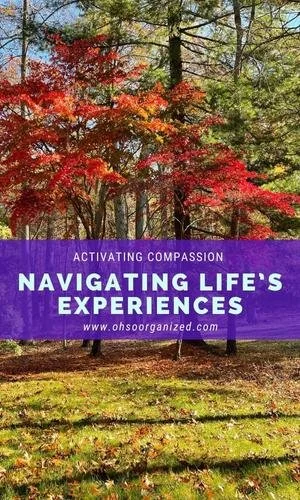Have you ever ignored the signs that it’s time to make a change? Then something significant happens. What was invisible moments ago becomes something you can no longer ignore. You might wonder, “How did I not see this before?”
It’s often the case that we conveniently ignore the signs. Why is that? Change can be scary. Its pursuit can require you to do uncomfortable things, like creating new habits or stepping outside your expertise or comfort zone. Instead of embracing change as a positive, proactive choice, we meet it with hesitation or fear.
Recently, I had an experience that made me think, “How did I not see this before?” I was going about my morning routine. I just applied my face moisturizer, looked in the makeup mirror, and was about to tweeze my eyebrows. Then I saw it. In the middle of my forehead, sticking out, was one long, white coarse hair. What? It wasn’t there yesterday or the day before. Did it grow overnight? How did that happen? Or had it been there for days, and I hadn’t noticed it? Well, I saw it that morning and quickly plucked it out.
Are you wondering how this relates to change? Once I saw the hair, I couldn’t unsee it, and I felt compelled to do something. Yes. Pulling it out was making a change of sorts. While my story might seem silly, it highlights how awareness drives change.
Are these scenarios more familiar?
Papers are piling up on the coffee table. You walk by them every day without giving them much thought. One evening, you wonder how the piles got so big. You can no longer pass them by, so you edit, let go and regain your surface. Your awareness drove change.
Clothes are overflowing in your closet. You navigate each morning irritably as you get dressed. One day, you recognize how much stress this causes you. You can no longer ignore it, so you edit and organize, which creates a smoother morning routine. Your awareness drove change.
Your computer is slow. It crashes, takes time to respond, and doesn’t function well. Each day you continue to work with a slow, unpredictable computer. At a point, you recognize this isn’t a tolerable way forward. You spend countless hours with tech support, hire a tech person for more help, and ultimately purchase a new computer because your hard drive is failing. Why did you ignore the signs for so long? Finally, awareness drove change. If you’re curious, that was me and I love my new computer.
“Awareness drives change.”
The other side of change is a wonderful place to be. But getting there can be slow when we ignore the cues. Once you ‘see’ and acknowledge the challenge, your mind creates space for finding solutions and taking action. While the initial noticing and awareness can be painful, as in “How did I not see this before?” don’t let that derail what happens next. Use your awareness as the impetus to embrace change. Once you see clearly, you have an opportunity for improvement.
Have you ever experienced a sudden awareness of a challenge that helped you make a change? Or do you have the understanding but are stuck moving forward? I’d love to hear your thoughts. I invite you to join the conversation.











